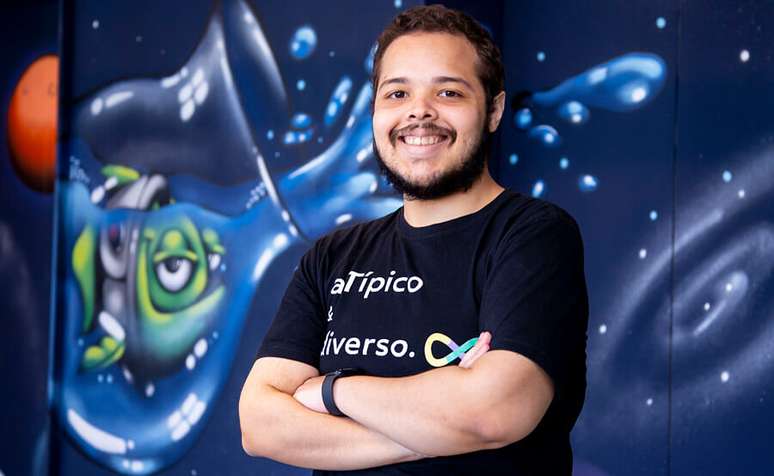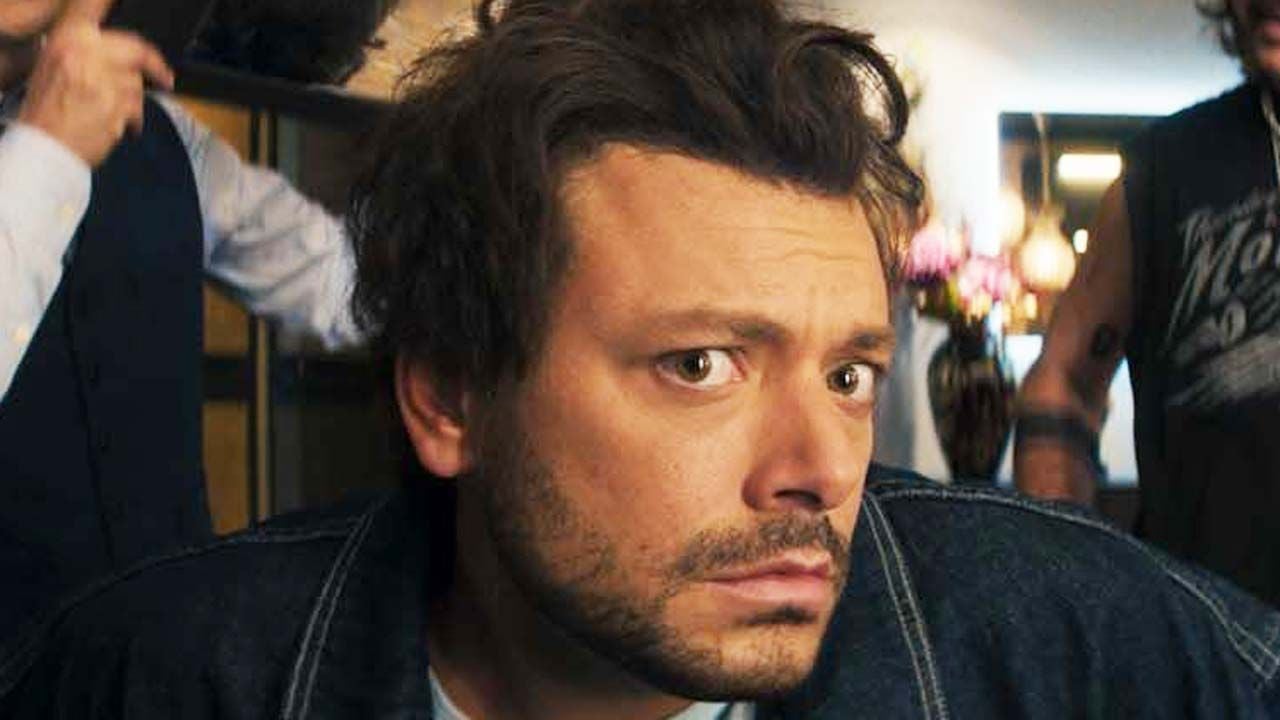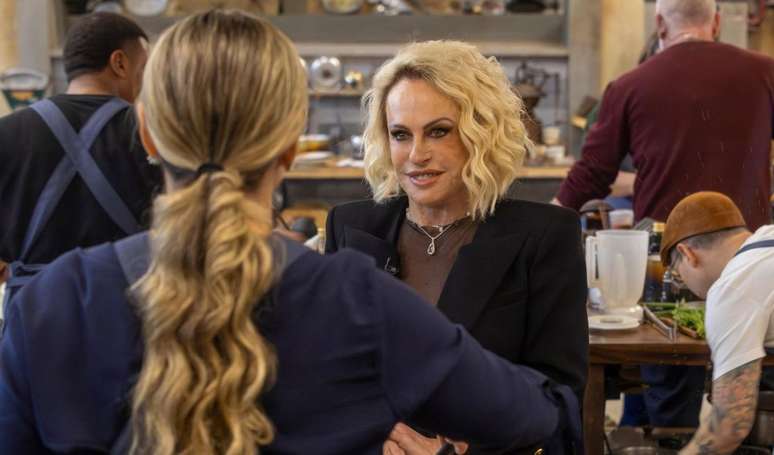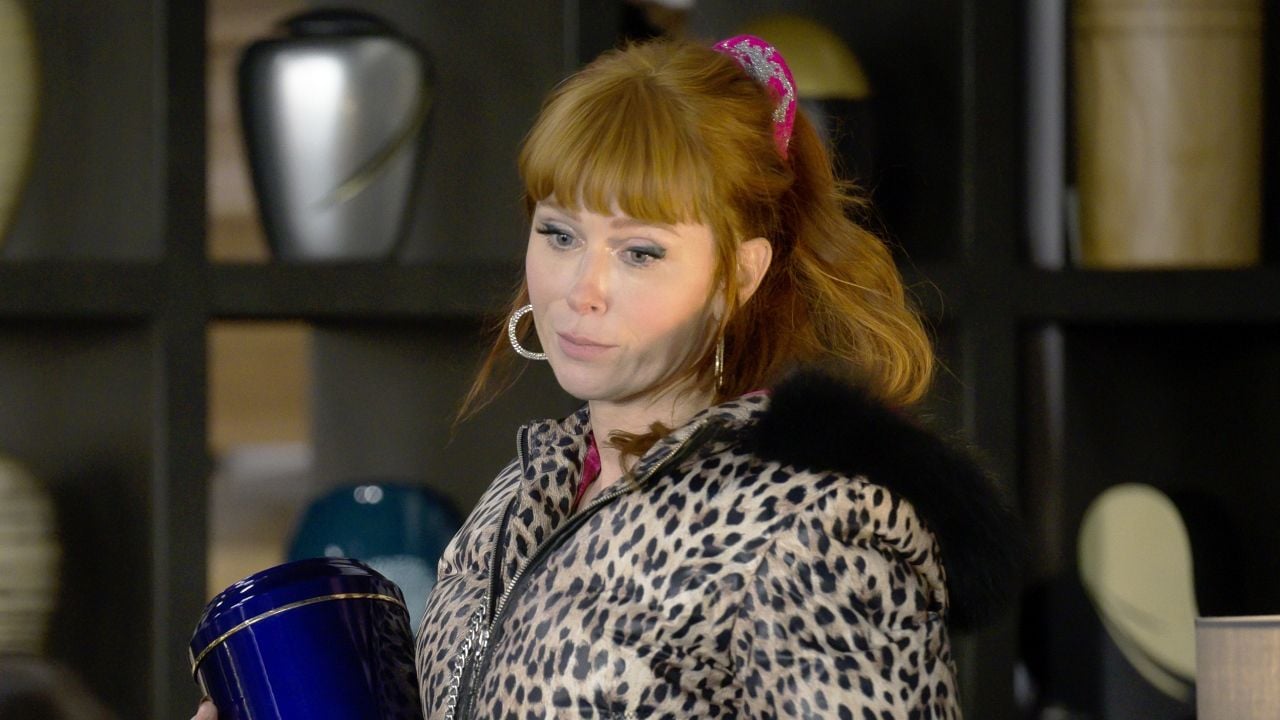He felt like an imposter speaking on behalf of a community that wasn’t his. Until everything changed
html[data-range=”xlarge”] figure image img.img-550cb29990cc2c873e0017804274e7dbmbuqvj67 { width: 774px; height: 476px; }HTML[data-range=”large”] figure image img.img-550cb29990cc2c873e0017804274e7dbmbuqvj67 { width: 548px; height: 337px; }HTML[data-range=”small”] figure image img.img-550cb29990cc2c873e0017804274e7dbmbuqvj67, html[data-range=”medium”] figure image img.img-550cb29990cc2c873e0017804274e7dbmbuqvj67 { width: 564px; height: 347px; }
Despite the successes, until 2021 Caio Bogos was not at ease at all. At 26 he had achieved a goal he set for himself as a teenager: starting a business with a social impact. We are talking about aTip, a startup that functions as a hub connecting neurodivergent professionals to companies with a diversity and inclusion program.
Neurodivergent people are those who have changes in cognitive, behavioral, neurological, and neuroatomic functioning, according to the Autism and Reality Institute. The group includes autism spectrum disorder (ASD), attention deficit disorder (ADHD), Tourette’s syndrome, dyslexia, schizophrenia, among others. aTip’s plan, which was created when Caio was in college and participated in the Autism Tech hackathon, was to focus on people with ASD in the early years, expanding its reach later.
The business idea was excellent, given that the vast majority of offers for the autistic public, until then, were aimed at children – as if adults with ASD did not exist or did not have their own pains and abilities. Potential customers, in turn, began to respond positively. The company’s mission, no one could deny it, was nothing short of noble. But Caio was distressed that, as CEO and founder of aTip, he was the voice of a community he didn’t belong to. He felt like an imposter. Until everything changed.
A dive into neurodivergence
To be more precise, things have remained the same. What changed was Caius’ understanding of himself.
Immersing himself in the universe of neurodivergence, Caio noticed that the characteristics of people with attention deficit hyperactivity disorder largely explained the difficulties he himself encountered in his daily life. Leading Tip for almost three years, he felt consumed by fatigue, with a high concentration difficulty and a strong tendency to procrastinate. He decided to do a neuropsychological evaluation. In early 2022, three years after creating aTip, an autistic person was discovered.
“I’m not and I don’t pretend to be a representation of something. I don’t really like that idea either. But the discovery made me more comfortable talking about it and it was very important, because it gave more strength to aTip”, said Caio inside interview with Vale do Suplício in 2022, shortly after 6/18, Autistic Pride Day, in which he wrote a LinkedIn text describing his new discovery.
The diagnosis justified his introverted manner and some abstraction difficulties; he explained why he is more exhausted than his partners when there is a long sequence of encounters and also clarified his difficulty in social performances. Finally, it helped him to understand his own limits and, above all, to respect them. “I’ve never stopped being an autistic person. I’ve only just discovered myself now [2022]. With that discovery, a lot of things from my past made sense.”
Among the things in the past that made sense were exactly what aTIp addresses. One of these was the anguish Caius faced in the selection processes. “I’ve never passed cultural fit tests, with long, non-objective questions. The whole barrier starts with a simple form.” Not knowing all the steps in the process and having no feedback, especially negative feedback, raises the level of anxiety in anyone – and this feeling is exacerbated among neurodivergents, making the process even more painful. And even if the person with autism, ADHD or other cognitive diversity overcomes this initial barrier, integration into the business routine is another request – which aTip, fortunately, comes to support.
why include
It is estimated that there are 2 million autistic people in Brazil. The spectrum of the disorder ranges from 1 to 3, migrating from the lowest to the highest number depending on the degree of support that the person requires in social life. Grade 1 supportive individuals tend towards independence, while those in grade 3 orbit need near-total support for basic activities such as eating, bathing, and dressing.
There are usually two reasons that drive a company to create a neurodivergent inclusion program: social responsibility and/or strategic and innovative advantage. Yes, strategic advantage. But don’t fall into that mass grave of imagining that the motivator would be the stereotypical idea that autistic people, for example, are prodigies of the exact sciences or another area of knowledge.
“We are talking about professionals with neither worse nor better talent. The final message is that companies see diversity and inclusion as a strategic advantage. More and more people will be diagnosed as autistic or as people with ADHD and not because more people are born with these characteristics, but because the volume of information is growing and the company must be prepared for this”.
Adriano Marchesini is a journalist specializing in IT, business and health with nearly 20 years of experience. After passing through the editorial offices of vehicles such as Estadão, Infomoney, ITWeb and CRN Brasil, he co-founded the agencies essense and Lightkeeper, which have already helped more than 80 companies in building multiplatform narrative content for businesses. She is co-founder of Unbox Project and co-host of the podcast Vale do Suplício. Created by journalists Adriele Marchesini andSilvia Noara Paladin
, the Vale do Suplício podcast was born as a counterculture to stage entrepreneurs – the typical MEI CEOs, LinkedIn text writers – to tell the story of entrepreneurs who say little, but do a lot. Listen on Spotify.
Source: Terra
Ben Stock is a lifestyle journalist and author at Gossipify. He writes about topics such as health, wellness, travel, food and home decor. He provides practical advice and inspiration to improve well-being, keeps readers up to date with latest lifestyle news and trends, known for his engaging writing style, in-depth analysis and unique perspectives.




-qdt8x3bmi3at.png)




